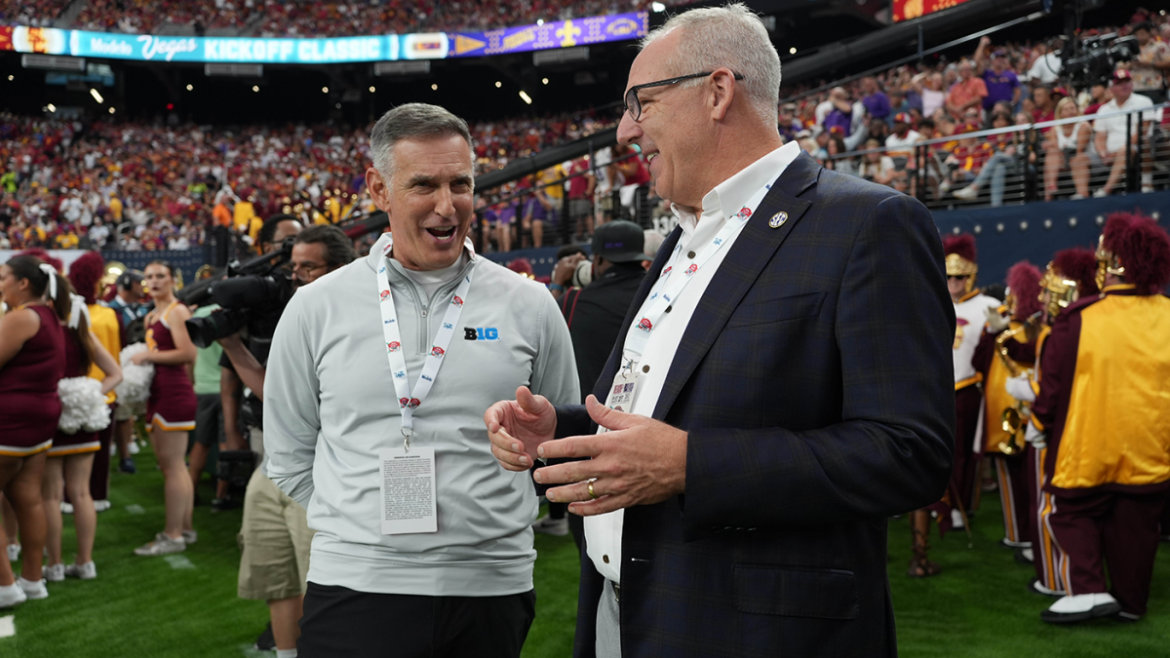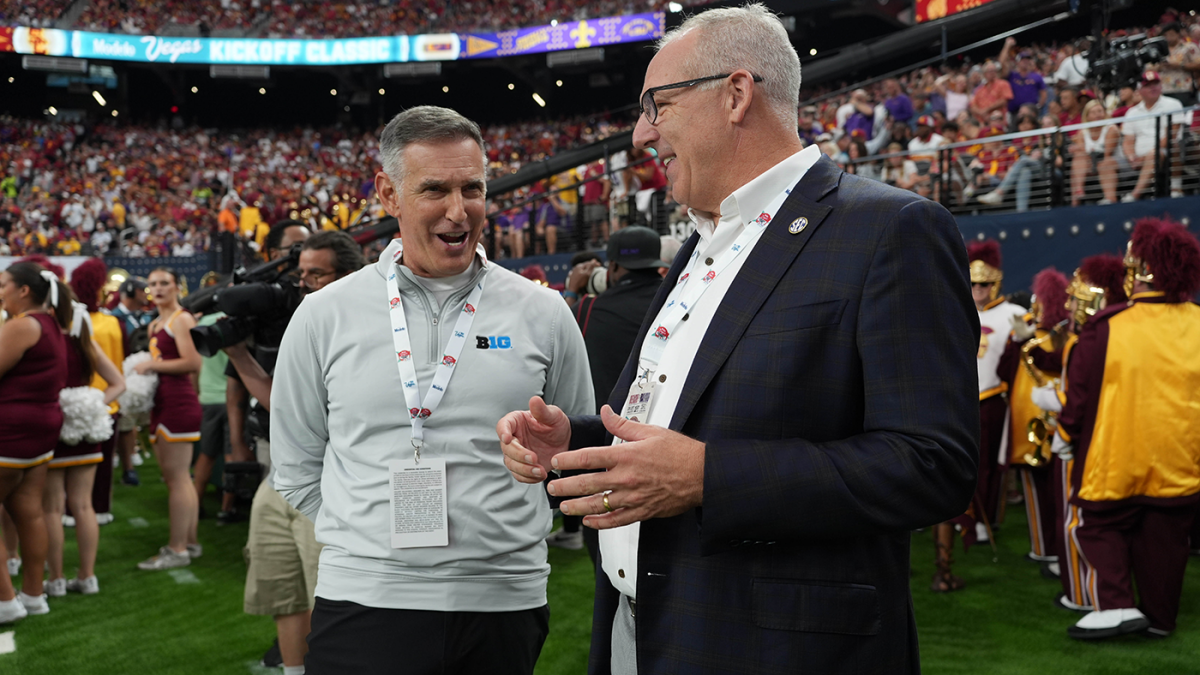The shifting landscape of college sports, particularly with regard to Name, Image, and Likeness (NIL) athlete compensation, has reached a pivotal juncture that implicates lawmakers, athletic conferences, and prominent political figures such as Senator Ted Cruz and former President Donald Trump. Their involvement signals an era where the governance, economics, and identity of collegiate athletics may be reshaped through federal legislation and commissions designed to bring order and regulation to what some view as a chaotic and rapidly evolving sector.
The NIL Market and the ‘Wild West’ of College Sports
At the heart of recent developments lies the burgeoning NIL market, where college athletes increasingly monetize their personal brands. Texas Senator Ted Cruz has highlighted this domain as a “major” priority for the Senate Commerce Committee. The NIL market’s scale now rivals multi-hundred million dollar revenues generated by power conferences like the Big Ten and SEC—each reporting upwards of $850 million in recent fiscal years—thus underscoring the financial dynamism and complexity involved.
Cruz’s characterization of the current NIL landscape as the “wild West” aptly illustrates the regulatory vacuum and inconsistency characterizing athlete compensation post the relaxation of NCAA rules. Institutions, players, and third-party entities navigate an environment rife with disparate state laws and market-driven fluctuations, which has driven calls for a unified federal framework.
Ted Cruz’s Role and Legislative Ambitions
Senator Cruz has emerged as a leading Republican voice advocating for reform that balances preserving elements of amateurism—a cornerstone that underpins scholarships and the Olympic pipeline—with enabling athlete equitable compensation. His approach signals a desire for federal solutions that achieve cohesion across conferences and states, thereby addressing systemic challenges such as booster-funded payments, transfer restrictions, and Title IX implications.
This legislative momentum is manifest in committee actions; notably, the House Committee on Education and the Workforce recently voted along party lines to advance a bill titled “Protecting [Amateurism]”—a Republican-backed initiative aiming to clarify and regulate college athletics governance and athlete eligibility. These moves demonstrate a growing GOP interest in shaping college sports legislation, positioning Cruz as an NCAA ally navigating the complex nexus of sports, education, and commerce.
The Trump Commission Plan: Ambitions and Abrupt Halt
Former President Donald Trump’s plan to establish a presidential commission on college sports marked a dramatic intervention in the sector’s governance. Envisioned as a comprehensive review body, the proposed commission aimed to scrutinize player movement—particularly the transfer portal’s frequent utilization—booster influence, conference realignment, and athlete welfare.
Despite initial enthusiasm, including endorsements from high-profile figures such as Alabama football coach Nick Saban, the plan experienced an abrupt stall. The reasons for this halt appear multifaceted, ranging from political dynamics within the Big Ten and SEC to broader concerns about executive overreach and partisan resistance. Nevertheless, the very proposal reflects recognition by influential actors that collegiate sports are at a crossroads needing systemic reform.
Interplay of Politics and College Sports Reform
The intersection of college sports and national politics has grown more pronounced. Cruz, while aligning with Trump on certain initiatives, notably diverges on specific strategies, signaling nuanced intra-party dynamics. His legislative work on NIL reform, contrasted with Trump’s top-down commission approach, exposes differing philosophies on how best to manage the sector’s future.
Complicating this landscape, universities—particularly within the Big Ten Academic Alliance—have galvanized collective resistance to perceived politicization of higher education and athletics, exemplified by faculty forming “mutual defense compacts” aimed at protecting academic freedom from political interference. These moves suggest that college sports reform debates are enmeshed in wider battles over institutional autonomy and cultural influence.
NCAA’s Position and the Industry’s Future
The NCAA itself has shown tentative openness to federal involvement, with its president Charlie Baker expressing willingness to consider commissions or legislation that might bring clarity to a fragmented system. The organization’s multi-decade history of amateurism is under pressure as the realities of athlete compensation, marketplace economics, and legal challenges converge.
Key issues remain unresolved, including how athlete voices will be incorporated into reform processes, the balance between preserving scholarships and enabling monetization, and how conference alignment and governance structures will adapt to new financial and regulatory realities. The involvement of poker players like Cruz and Trump underscores that college sports are no longer mere athletic contests but arenas where federal policy, political will, and market interests converge.
Impact and Broader Implications
The ongoing debates and legislative pushes are reshaping the conceptual foundations of American college sports. From transmitting billions in scholarships and international Olympic successes to embracing commercial realities and athlete empowerment, the ecosystem is evolving rapidly. The ability of lawmakers like Cruz to craft durable, equitable legislation will significantly influence whether college athletics retain their unique identity or transform into a more professionalized model.
Meanwhile, Trump’s foray into the sector—with a largely halted commission plan—illustrates political stakes and potential volatility embedded in these reforms. The engagement of university faculties resisting political coercion adds layers of complication but also highlights the importance of higher education as both cultural institution and athletic powerhouse.
Conclusion: Navigating a Transformative Epoch in Collegiate Athletics
The NIL market’s rapid expansion, combined with political and legislative focus—especially from figures like Senator Ted Cruz and former President Donald Trump—signals a transformative epoch for college sports. Efforts toward federal regulation seek to unify a fragmented landscape fraught with financial disparities and regulatory inconsistencies. Meanwhile, competing visions about governance, athlete rights, and institutional autonomy create a dynamic arena full of tension and promise.
How this unfolds will determine not only the economic and competitive future of college athletics but also the cultural role they play in American society. Whether reform efforts achieve equilibrium between commercial opportunity and educational mission will rest on lawmakers’ ability to reconcile diverse interests and forge policies responsive to the evolving sports market’s challenges. This moment of reckoning offers an unprecedented chance to shape the future of collegiate athletics for generations to come.





